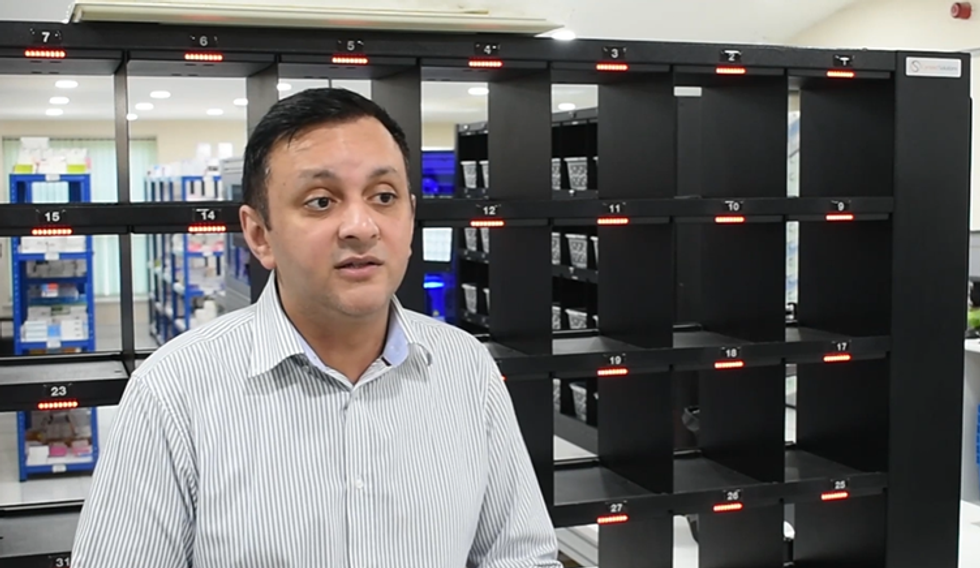By James Tibbs
Our Totton branch has an incredibly high volume of original pack dispensing, roughly 45,000 items. As we became busier and busier in the dispensary we were finding that our pharmacists, dispensers and other technicians simply didn’t have capacity to deliver the services that we needed them to.
We all know there is a real emphasis right now on pharmacies doing more services and we knew we had to change the way we operate to survive. So we decided it was time to look into a sound automation solution for our medication dispensing process, one that would allow us to free up the time of the pharmacists and the rest of the team so they could better support patients.
After a lot of research we invested in Centred Solutions FLOWRx Hub and InStore solutions which were installed late last year. It provides us with the whole package and has automated our entire dispensing process from picking to packing and labeling to checking.
Our situation was quite unique as we bought the system initially for our existing high-volume pharmacy in Totton so the hub and the spoke are actually on the same site. People wouldn’t usually look at a hub and spoke solution for that kind of set up but it has allowed us to significantly free up time in store for more services.
What it has also done is allow us to look at other opportunities to grow and expand. The pharmacy landscape is changing and there are lots of opportunities coming up. We have found that having your technology and the right infrastructure in place to support your existing footprint before you expand is the ideal way to grow in a safe and controlled way.
We never thought that five years ago we would buy another pharmacy, yet we have already bought one and are now in the process of buying two more. I’m not worried about the increase in volume this expansion will bring because I know our technology is going to be able to support it.
The pharmacies we are buying are struggling but having our solution already in place means we can support the teams from day one and take away the burden of having to stick another label on a box, because let’s be honest that is what pharmacists spend most of their time doing, so they can better spend their time supporting customers.
In our existing store we’ve already been able to significantly increase the amount of services we deliver and we are now topping the leader board for the most New Medicine Services (NMS) done in England. We were already doing a large number of NHS services so the biggest increase for us has been the number of private services we can now deliver.
We’ve been able to move into areas like aesthetics, minor surgical procedures, blood testing, hormone replacement therapy and travel clinics. We’re now more of a health hub, not just a pharmacy that supplies medicines. Previously we had to signpost patients to services outside the pharmacy and they would often get lost in the system. Now we can do everything in the pharmacy we don’t lose them and they get a better experience. From a business perspective it also offers opportunities.
It means we can now cross-sell to these patients, we retain their custom and, because they are getting a good service, we often end up getting the prescriptions for their friends and family based on their recommendations.

It’s not only about the efficiency and growth opportunities. There is the patient safety element too. The barcode technology we now use means that, as a pharmacist, I can confidently accuracy check and clinical check right at the beginning of the day and then not worry about that prescription again.
The in store process is very straightforward. The software uses barcode scanning so it is very risk averse and because checks are done at the start of the process the pharmacists doesn’t need to intervene when it comes to dispensing unless there has been an issue flagged by the system. The technology has all the checks and safeguards in place to reassure me that the bag of medication has gone to the right patient.
AR Pharmacy is at the forefront of a new movement. Technology is really going to be instrumental in the future of pharmacy. We can all see that, so far, additional or increased funding has not been forthcoming.
It’s essential that we look at different options and different ways of working to be able to deliver more services and thrive as a sector. To do that you have to be brave, push boundaries and take a risk. That’s exactly what we have done and it has paid off.











